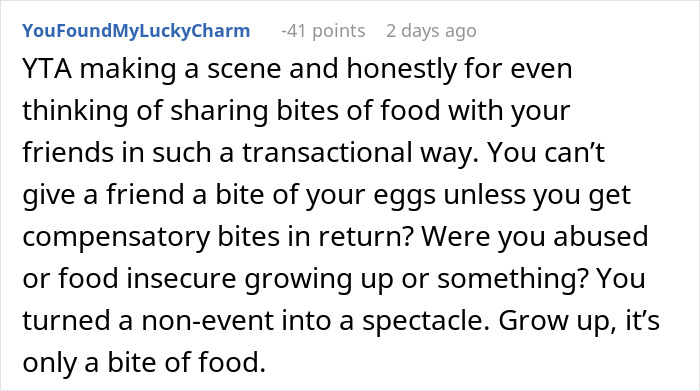Group outings can be tricky, especially the ones that revolve around food—all people have their own preferences and dietary needs.
Reddit user YuriPumpkinSpice recently shared a challenging experience where his gluten allergy collided with a woman’s pregnancy cravings during breakfast with friends.
Tensions rose after the lady, Via, insisted on him sharing his meal with her, leading to a confrontation that made everyone a bit uncomfortable.
The story highlights the importance of setting and enforcing personal boundaries in social settings and serves as a reminder that you can’t always get what you want.
This person has just figured out that they have celiac disease and can’t eat gluten

Image credits: cottonbro studio / pexels (not the actual photo)
Which immediately became a problem
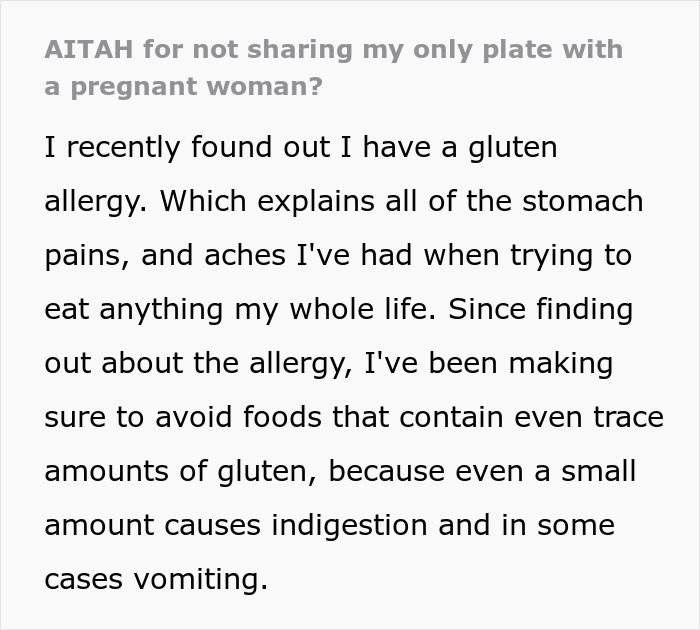
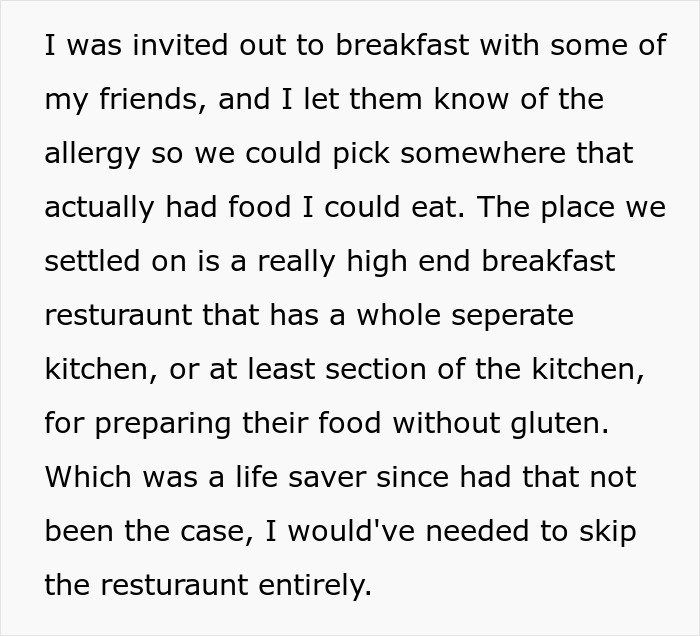


Image credits: Mikhail Nilov / pexels (not the actual photo)
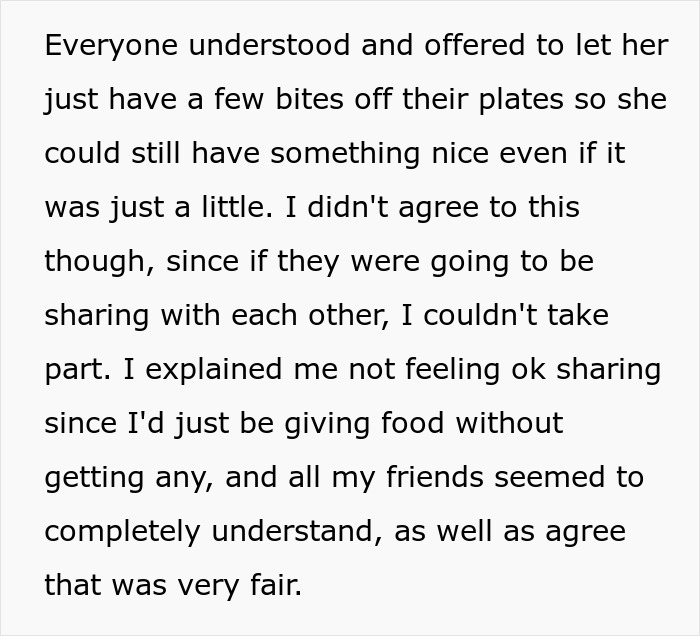
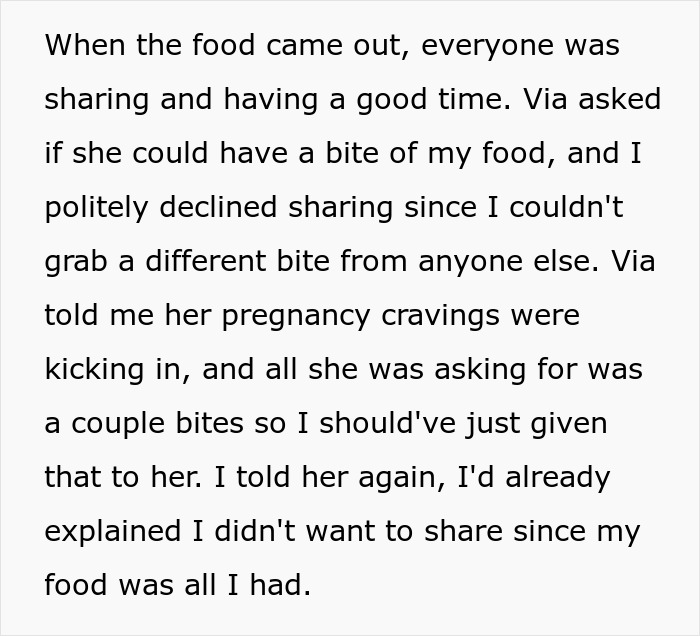
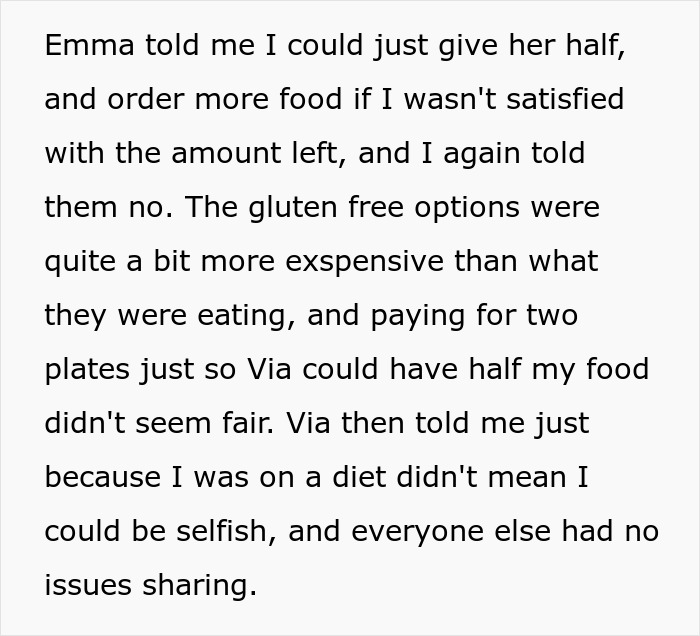

Image credits: Pixabay / pexels (not the actual photo)
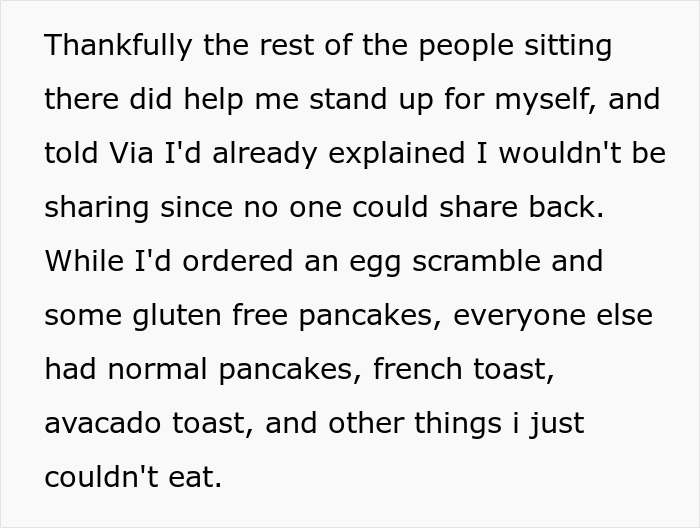
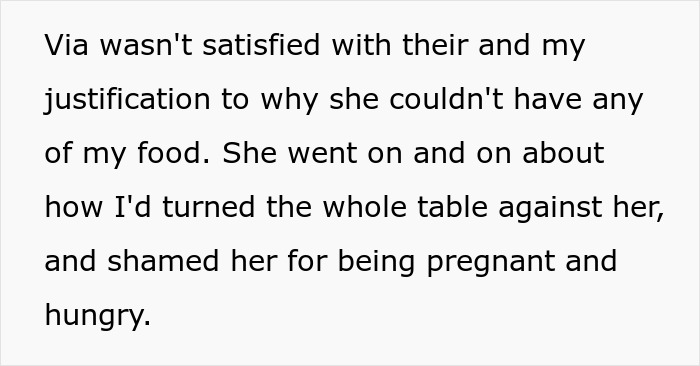
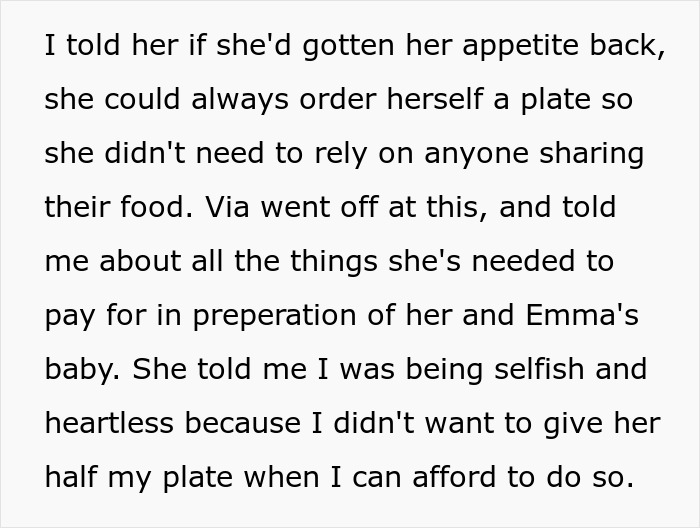






Image credits: YuriPumpkinSpice
Sharing food is an intimate gesture, and there are times when we don’t want to do it
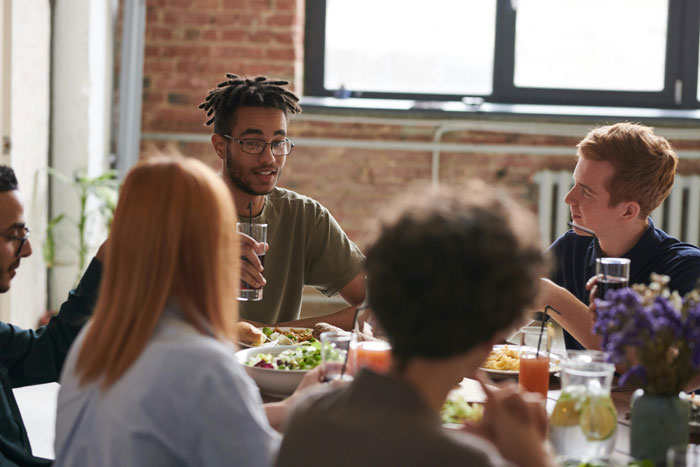
Image credits: fauxels / pexels (not the actual photo)
You don’t need an allergy to have strong feelings against the idea of passing around your plate, and looking at how animals handle food might give us a better understanding of why that is.
According to Jennifer Verdolin, Ph.D., an animal behavior researcher specializing in social and mating behavior, sharing food is indicative of a close relationship, because food is generally a desirable resource. “The better the resource, the less likely you are to want to share it,” she says. “Especially if it is hard to come by.” And if the gluten-free option at the restaurant was, indeed, more expensive, you could very well make the case that it was more valuable than the other dishes.
Now, if you don’t want others to have a piece of your meal and they take it anyway, that is considered a sign of dominance, Dr. Verdolin explains. “And that is irksome,” she says.
In some cases, you may not care about it at all, either because the food isn’t that good, or because you’re also getting some food from the person, Dr. Verdolin adds. “Notice, though, that this usually only feels okay if both foods are desirable to both parties,” she says.
In other words, if your dinner mates are offering you something that you don’t like, then it’s worthless to share. Dr. Verdolin says believes this explains why ordering small plates for multiple people to share requires so much negotiation, and it might be the reason behind this conflict as well.
Most of the people who became familiar with the conflict said that the author of the post did nothing wrong

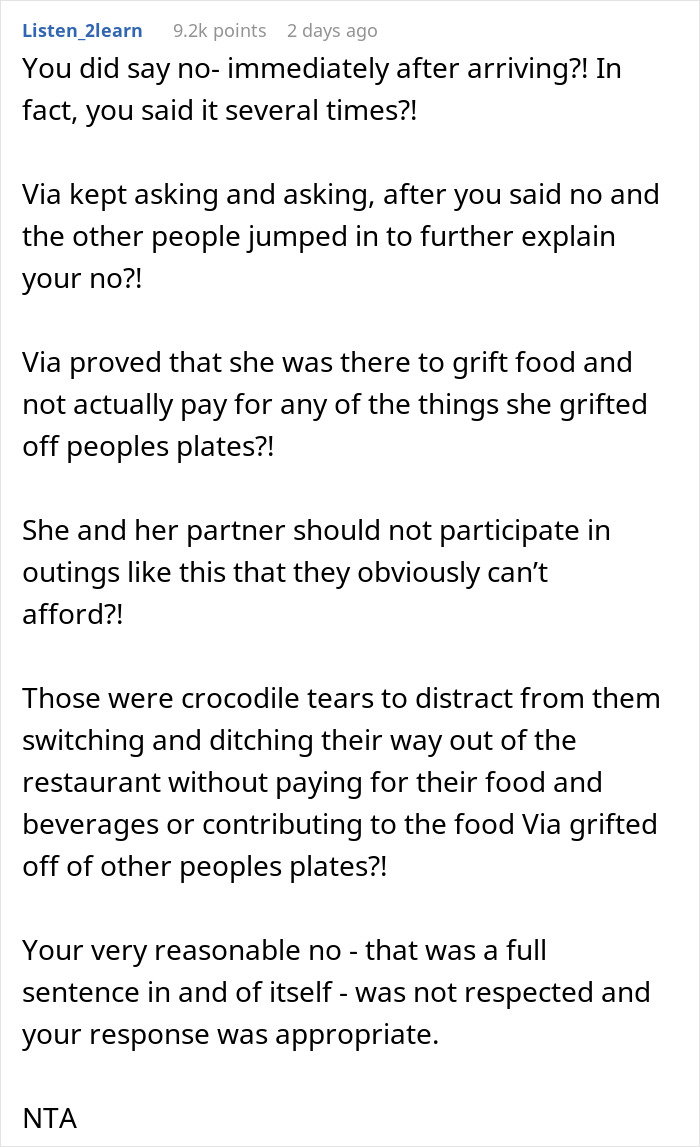
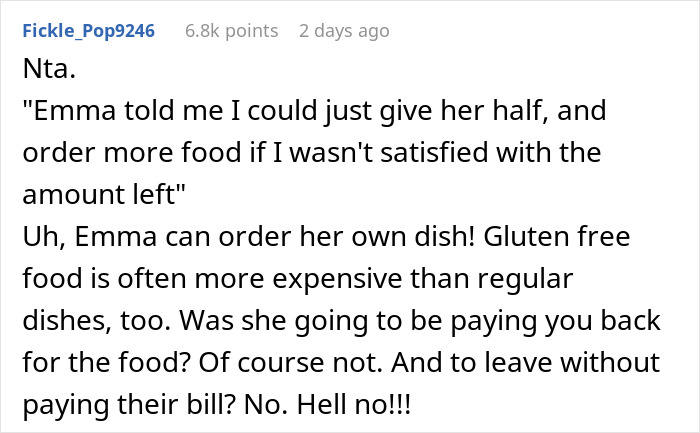

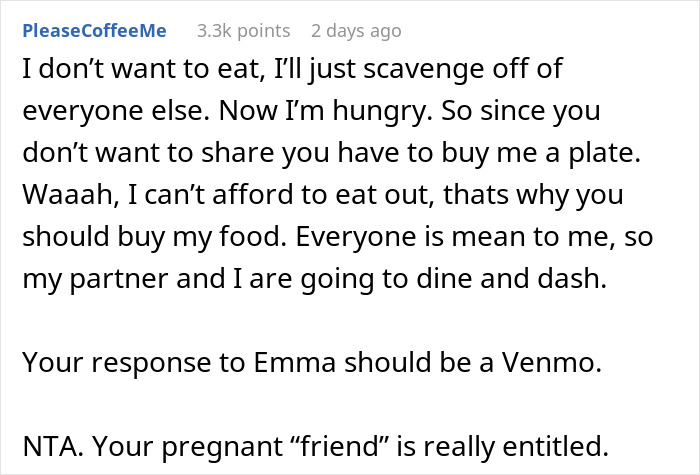
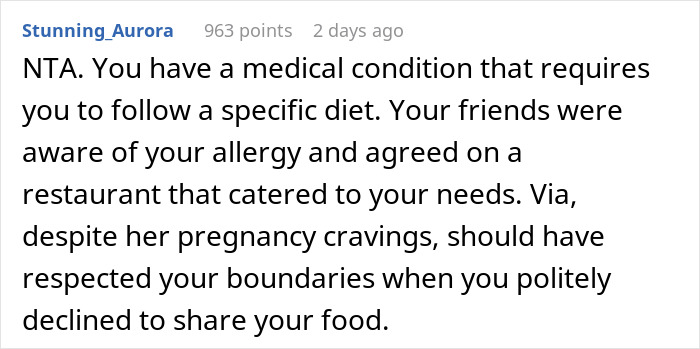





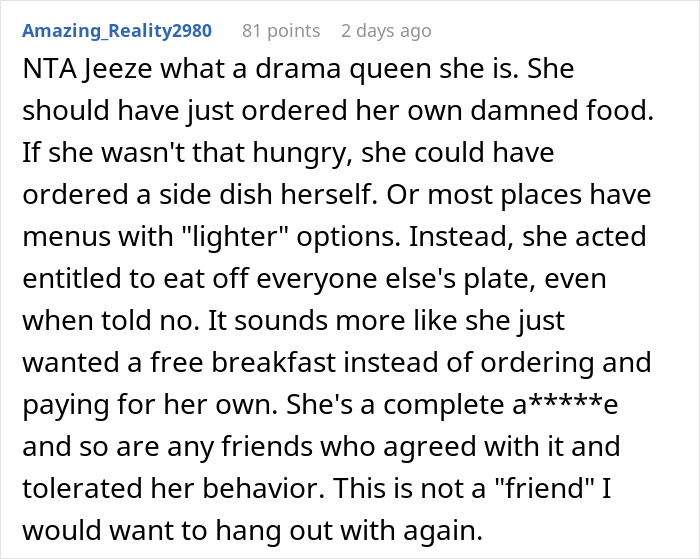
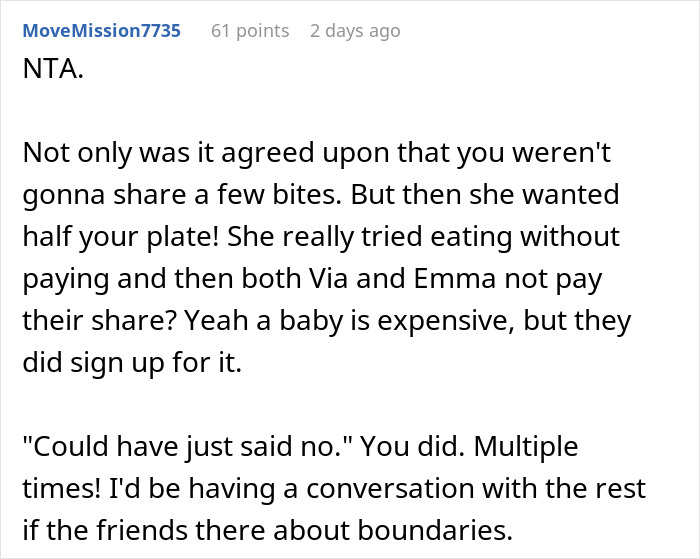


But some weren’t so supportive

